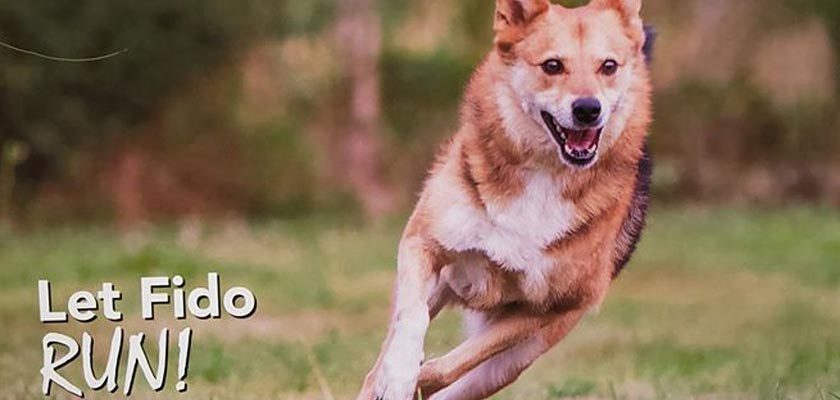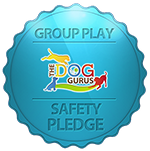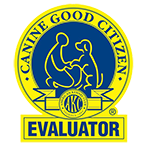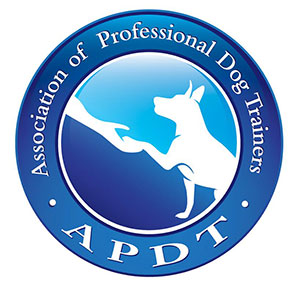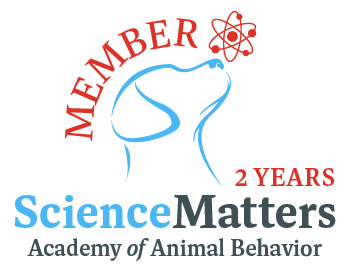“I take him to the dog park for two hours each day, and he is STILL not worn out.”
I hear this often in my caseload of behavior clients and from our clients at emBARK. Believe it or not, plain old physical exercise is not the best option for dog with excess energy. While physical exercise is crucial to all species, both bipedal and quadrupeds, so are mentally focused activities. In our classes at emBARK, we advise on the benefits of both “mathematics” and “recess” within your dog’s repertoire. A good balance of physical exercise and enrichment activities can help all dogs, of any energy level, and of any age.
Animals are designed to behave – meaning they are innately wired to DO things. By only allowing your dog to run, run, run, you are not engaging the part of the brain that is used for focus and problem solving. Your dog is also gaining endurance, which you may not be able to appease as they become more conditioned.
Allow your dog to smell, sniff, and jump in addition to running – this helps to keep their minds engaged as well as using their bodies. Find a safe space to do this where your dog can be off leash: a friend’s yard, the dog park on a day where there are appropriate dogs, or on a long line. If you don’t have access to a safe place, SniffSpot can be a great option. Essentially a VRBO/Air B&B for dogs, SniffSpot allows private dog owners to rent their land by the hour for your to exercise your dog. Download the app SniffSpot to find locations near you (www.sniffspot.com).
Our dear emBARK friend, Michel, rents out the most fantastic twenty acres of fenced-in prairie and woods in Fairchild. Only one person at a time can use this land, so it’s an excellent and safe option for dogs who are unable to be off leash in other venues or around other dogs. Taking your dog to a brand new place to walk (ideally in a place where there are no other dogs or stimuli) will provide new smells and help develop that thinking part of their brain. After an hour there, your dog will be exhausted!
To further engage your dog’s mind, it is important to find enrichment activities that help develop focus, problem solving skills, and duration of intense engagement. Interaction with toys, and a wide selection of interactive toys, has been shown to decrease dog’s arousal and behavior problems such as barking, digging, and destructiveness [1]. We also know that enrichment has been shown to increase an animal’s coping skills and reduce abnormal behaviors [2, 3].
What does occupational enrichment look like? In our homes, we can create foraging and innate hunting tasks for our dogs by using toys or games to transform a daily meal into an activity that uses brainpower and practices focus. A food puzzle, Kong, slow bowl, or game can turn a two-minute meal into a 20-minute food-seeking mission!
I am also a big fan of scatter games: a handful of food is thrown out in the yard for them to find (being mindful of any resource guarding behaviors that may contraindicate this game). With deep Wisconsin snow, this becomes a fabulous hunting game for each piece of kibble or treat that is buried. And no worries about “teaching” your dog to eat things in the yard or becoming a scavenger – genetics has already ensured that your dog was wired with this skill well before they came to live at your house. Using their naturally, highly adapted nose to its full potential is an easy way to get them to practice mindful activities and develop that ever-so-important prefrontal cortex.
My challenge to you this week is two-fold: 1) Use at least four meals this week to do a foraging game, and 2) Walk your dog in at least one new environment. You will be amazed at how doing these things changes your dog’s energy and work toward creating a happier home for everyone.
References:
- Mason, G., Clubb, R., Latham, N., Vickery, S., 2007. Why and how should we use environmental enrichment to tackle stereotypic behavior? Applied Animal Behaviour Science 102, 163-188.
- Newberry, R.C., 1995. Environmental Enrichment: Increasing the Biological Relevance of Captive Environments. Applied Animal Behaviour Science 44, 229-243.
- Tarou, L.R., Bashaw, M.J., 2007. Maximizing the effectiveness of environmental enrichment: Suggestions from the experimental analysis of behavior. Applied Animal Behaviour Science 102, 189-204.

